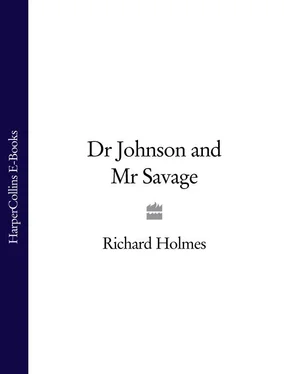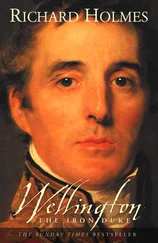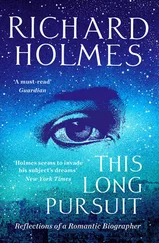Boswell recorded these with great accuracy and tenderness in later life, when they had become almost endearing features. Yet even he notes that the painter Hogarth, on first spotting Johnson in Richardson’s drawing-room, assumed he was a congenital idiot taken in for philanthropic reasons. 8
In his late twenties Johnson was a figure of horrid fascination. Men were intimidated by him, women were both excited and repulsed, children were frightened in his presence and cruelly mocking behind his back. This disturbing, unfamiliar picture emerges from the confidential reports of several of the schools that rejected him.
The governors of Solihull, seven miles outside Birmingham, sent this reply to Gilbert Walmsley’s recommendation of Johnson for the vacant headmastership in 1735: ‘… all agree that he is an excellent scholar, and upon that account deserves much better than to be schoolmaster of Solihull. But then he has the character of being a very haughty, ill-natured gent., and that he has such a way of distorting his face (which though he can’t help) the gent, think it may affect some young lads; for these two reasons he is not approved on …’ 9 Boswell did not know of this report, or at any rate did not quote it.
A similar rejection came from the headmaster of Brewood Grammar School, fifteen miles west of Lichfield, in 1736. Johnson was refused the post of assistant master, ‘from an apprehension that the paralytick affection … might become the object of imitation or of ridicule, among his pupils’. 10 Boswell did have this report in his archives, but omitted it from his account of young Johnson, including it only as a retrospective footnote to his moving description of Johnson’s death in 1784.
Less than a dozen letters have survived from this Lichfield period of Johnson’s life, and so it has always remained obscure. But something of that ‘haughty, ill-natured’ manner appears in his earliest attempt to find a professional opening in London. Writing to Edward Cave of the Gentleman’s Magazine in November 1734, he confidently recommends himself – an unknown, unemployed schoolmaster from Stafford – for the post of literary correspondent: ‘Sir: As You appear no less sensible than Your Readers of the defects of your Poetical Article, You will not be displeased, if, in order to the improvement of it, I communicate to You the sentiments of a person, who will undertake on reasonable terms sometimes to fill a column.’ 11
We particularly catch young Johnson’s voice in his bullish, and splendidly tactless, summary: ‘By this method your Literary Article, for so it might be called, will, he thinks, be better recommended to the Publick, than by low Jests, awkward Buffoonery, or the dull scurrilities of either Party.’ 12 The application met with a polite refusal.
Haughtiness covered not merely provincial gaucherie, but desperate loneliness and uncertainty. Johnson’s frustrated intellectual brilliance hid extraordinary emotional immaturity. This, Boswell never seems to have grasped. For him, Johnson was a sage from boyhood, a wise owl from the egg. Yet the truth seems to be that, barricaded in his large monstrous body, Johnson had the tender, awkward emotions of an overgrown child.
He depended on his friends, and needed almost to be mothered by them. In 1735, he wrote one of his few revealing letters to Richard Congreve, a twenty-one-year-old undergraduate then at Oxford. Congreve had known him briefly at Lichfield and had written a summer letter vaguely suggesting a renewal of their ‘old acquaintance’. Johnson, then twenty-six, replied with an awkward but surprisingly romantic enthusiasm. He imagines their friendship as a kind of Arcadia, from which he can flee from the hostile world.
Our former familiarity which you show in so agreeable a Light was embarrassed with no forms, and we were content to love without complimenting each other. It was such as well became our rural Retreats, shades unpolluted by Flattery and falsehood, thickets where interest and artifice never lay concealed! To such an acquaintance I again invite you … 13
The way young Johnson already idealises friendship is striking. His instinct is to treat it as poetic and aphoristic ‘He may be justly said to be alone,’ he tells Congreve, ‘who has none to whom he imparts his thoughts.’ Something intensely personal emerges in the description of the true friend: one with whom a man may converse ‘without suspicion of being ridicul’d or betray’d’. 14 This secret longing for companionship prepares us for Savage’s tremendous impact on his life.
The actual news that Johnson conveys to Congreve is oddly muted: ‘little has happened to me recently’, he remarks, and he will not dwell on ‘past disappointments’. The only thing worthy of note is the Edial scheme, ‘a private boarding-school for Young Gentlemen whom I shall endeavour to instruct in a method more rational than those commonly practised’. It is what he fails to tell his Arcadian friend that is most remarkable: that in less than a fortnight he is due to be married. Indeed his future wife, Elizabeth Porter, gets no mention at all. Johnson appears too embarrassed, too uncertain of himself, to mention his strongest feelings.
Yet these strong feelings certainly existed, especially in sexual matters. Johnson’s profound emotional frustration throughout the early part of his life, both in Lichfield and in London, forms a part of his literary personality that has rarely been recognised. Just as it is difficult to imagine Johnson young, so it seems impossible to imagine Johnson in love. Thanks largely to Boswell, the very phrase sounds faintly ludicrous. But Boswell, whose Journals reveal how fascinated, amused and tortured by sex he was all his own life, could never really bear to envisage his sage in equivalent throes of lust or passion. Having first met Johnson at the age of fifty-four (Boswell then being a mere twenty-three), he always projected a venerable father-figure, a moral counsellor, detached from passion. So, perhaps understandably, he could never really accept the vulnerable, tender and romantic side of ‘the Great Cham’, in his far-distant youth. This has subtly affected our view of Johnson’s whole biography ever since.
Boswell always deflects the question of Johnson’s sexual feelings by treating them whimsically, if not farcically. He admits that Johnson was attracted by women: ‘Johnson had, from his early youth, been sensible to the influence of female charms’; but he typically diffuses this by archly remarking on the ‘facility and elegance’ with which Johnson could ‘warble the amorous lay’. 15
This deflating humour is deployed whenever he writes about the women who, throughout Johnson’s life, were the serious objects of his interests, hopes and passions. There were more than is usually thought: apart from his wife Elizabeth Porter, there was the adored Molly Aston; Hill Boothby (intended as Johnson’s second wife); Hester Thrale (the confidante who replaced a second wife); the understanding Elizabeth Desmoulins (the young widowed daughter of his doctor); the admired Elizabeth Carter; and half-a-dozen young women writers and actresses, whom Boswell often simply omits from his account.’ 16
His treatment of Johnson’s strange, passionate and deeply unhappy marriage to Elizabeth Porter as a sentimental farce of ‘connubial felicity’ is wholly characteristic. 17 Nowhere does he seriously consider the impact of Johnson’s sexual frustrations on his beginnings as a writer and poet. Modern biographers tend to take the same line. Even James Clifford writes: ‘Johnson could never give himself up wholeheartedly to romance, whether in life or in literature.’ 18
Yet the women who knew young Johnson best, either directly or through family gossip and reminiscence, take a very different attitude. Among them are Lucy Porter (Johnson’s stepdaughter), Anna Seward and Hester Thrale: almost invariably cited by Boswell as ‘unreliable’ witnesses.
Читать дальше












